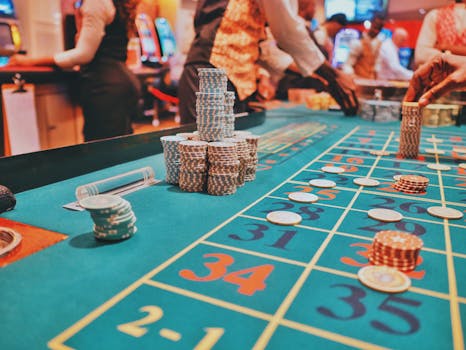Risk-taking in Gambling: A Psychological Analysis
Introduction: Understanding the Gambler's Mind
Gambling, an activity where something of value is risked on an event whose outcome is uncertain, has fascinated and perplexed many. The psychological processes behind risk-taking in gambling are complex and have significant implications for both individuals and society. This article delves into the psychological analysis of gambling, exploring why individuals engage in risk-taking behaviors and the impact of such decisions.
The Allure of Risk: Why People Gamble
One of the fundamental aspects of gambling that attracts players is the thrill of risk and the potential reward. Psychologically, this is often explained by the variable ratio reinforcement schedule, where rewards are given at unpredictable intervals. This unpredictability in rewards can lead to higher engagement levels, making gambling highly addictive.
Cognitive Dissonance and Gambling
Cognitive dissonance occurs when one's beliefs do not match their actions, leading to psychological discomfort. In gambling, this can happen when a gambler continues to play despite understanding the high likelihood of losing, trying to justify their actions by focusing only on potential wins.
Risk-taking and the Illusion of Control
Many gamblers believe they have control over the outcomes of games of chance, a phenomenon known as the illusion of control. This cognitive bias can lead individuals to take greater risks under the false belief that they can influence the results through skill or strategy.
The Role of Dopamine in Gambling Addiction
Dopamine plays a crucial role in the psychology of gambling. It is a neurotransmitter that helps control the brain's reward and pleasure centers. The prospect of winning triggers a dopamine release, creating a rush that gamblers often seek to replicate, pushing them to take further risks.
Overconfidence in Gambling
Overconfidence can significantly affect gambling behaviors. Gamblers often overestimate their chances of winning, which can lead to increased risk-taking. This overconfidence is often fueled by small wins, despite overall losses.
Advantages and Disadvantages of Risk-taking in Gambling
The primary advantage of risk-taking in gambling is the potential for significant financial rewards. Winning large sums can indeed be life-changing. However, the disadvantages are much more significant. Risk-taking in gambling can lead to addiction, financial ruin, mental health issues, and negative impacts on personal relationships.
Practical Examples of Risk-taking in Gambling
A practical example can be seen in sports betting, where a gambler might continue to increase their bets after small wins, believing they have a 'hot streak' or some control over the outcomes. Another example is in the stock market, often likened to gambling, where traders might risk large amounts of money on speculative stocks hoping for a high return.
Conclusion: Balancing the Risks and Rewards
Understanding the psychological underpinnings of gambling can help individuals make more informed decisions about their gambling habits. It’s important for gamblers to recognize the signs of problematic gambling behaviors and seek help if necessary. For those who choose to gamble, it’s crucial to do so responsibly, understanding the risks and maintaining control over their actions.
For further reading on gambling psychology and getting help, you can visit National Council on Problem Gambling or similar resources in your area.
In conclusion, while the thrill of risk-taking can be exhilarating, it is vital to approach gambling with caution and awareness of the psychological effects it can entail.

.png)



